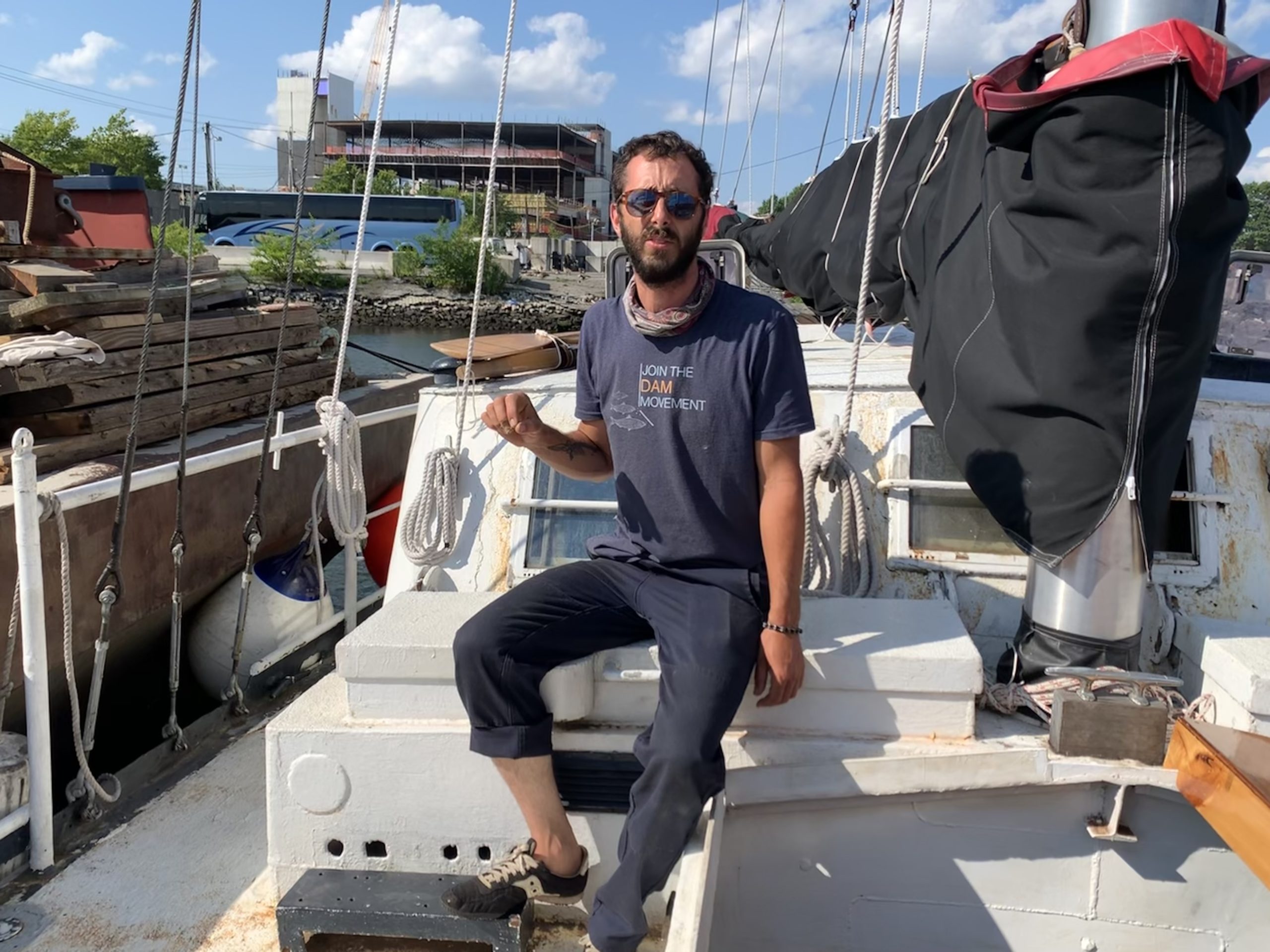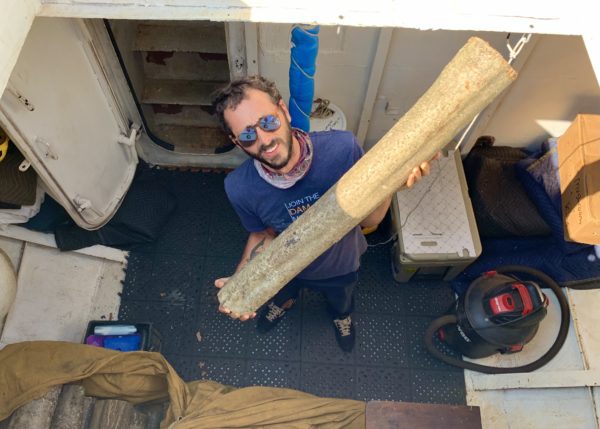Sail freighter Apollonia returns to Red Hook, hauling shiitake logs and Hudson Valley artisanal goods
Labels proclaim 'Wind Shipped'



 Roughly 300 oak and sugar maple logs from upstate forests were delivered to the industrial waters off Red Hook on Friday aboard the sail-powered cargo vessel Apollonia. They will be used to cultivate shiitake mushrooms using a traditional Japanese method.
Roughly 300 oak and sugar maple logs from upstate forests were delivered to the industrial waters off Red Hook on Friday aboard the sail-powered cargo vessel Apollonia. They will be used to cultivate shiitake mushrooms using a traditional Japanese method.

Photo: Mary Frost/Brooklyn Eagle
Shiitakes are prized by cooks for their smoky, savory flavor. But it was their “wind-shipped” mode of transport that attracted dozens of enthusiasts to the Gowanus Bay Terminal (GBX~).
The delivery turned into a Red Hook shindig, with local food and drink, Hudson Valley products for sale, traditional music and a lecture on growing shiitakes.

Brooklyn Boro
View MoreNew York City’s most populous borough, Brooklyn, is home to nearly 2.6 million residents. If Brooklyn were an independent city it would be the fourth largest city in the United States. While Brooklyn has become the epitome of ‘cool and hip’ in recent years, for those that were born here, raised families here and improved communities over the years, Brooklyn has never been ‘uncool’.